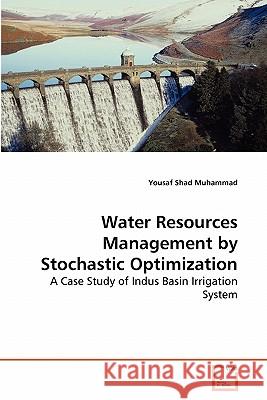Water Resources Management by Stochastic Optimization » książka
Water Resources Management by Stochastic Optimization
ISBN-13: 9783639286335 / Angielski / Miękka / 2010 / 112 str.
Irrigation water management plays a significant role in the economies of many developing countries. Developments in the system sciences, operations research and mathematical modeling for decision making under uncertainty have been successfully implemented for water resource management in many advanced countries. In this study we are presenting a two stage stochastic programming model for Indus basin irrigation system. This model takes inflow and rainfall as stochastic . We are presenting a comparison between the deterministic and the scenario-based stochastic programming models. We divide the whole basin into three rainfall zones which overlap over 44 canal commands. Data on crop characteristics are taken on canal command levels. We then use ten-daily and monthly time intervals to analyze the policies. All the decisions on hydrologic aspects are governed by irrigation and agricultural development policies. Storage levels are maintained according to a power generation policy. The objective is to maximize the expected revenue from crop production. We discussed the flexibility of the stochastic optimization model compare to a deterministic one.











